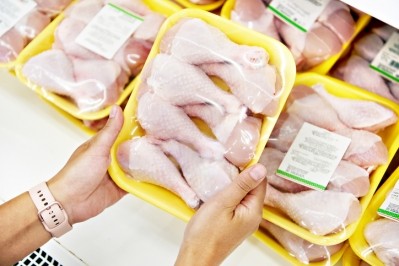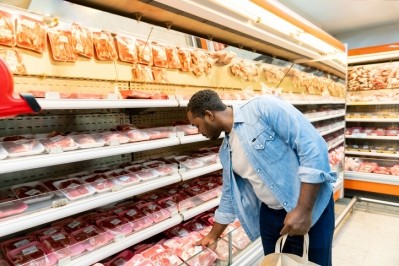Bridging the gap between conventional meat and alternative proteins

Industrial animal agriculture has led to inhumane conditions for animals, environmental pollution through excessive manure and the rise of antibiotic resistance, argued Brent Kim, research program manager, Johns Hopkins Center for a Livable Future.
“Large operations in the United States today and elsewhere in the world can easily house thousands of cattle, hundreds of chickens and tens of thousands of pigs in a single industrial scale operation,” Kim said, citing his research on the intersection between public health and the ecological impact from industrial animal agriculture.
This poses significant animal welfare and sanitary problems in animal protein production. He addressed the lack of pain relief provided for animals, as well as improper manure handling that creates waste and illness for animals and humans.
“In the United States alone we slaughter nine billion animals annually. So, we’ve taken what is otherwise a valuable source of manure and created a waste problem out of it … to manage that waste, the manure is typically … spread on nearby fields as a form of disposal. In doing so, we are releasing drug residues, excess nutrients, viruses, bacterias and heavy metals into our air, water and soil,” he said.
Antibiotic use in particular, he added, have risen due to public health concerns associated with these practices, creating bacteria strains that not only multiply but resist antibiotics in humans which develop into infections and are more costly to treat.
“In 2019, the number of deaths from antibiotic resistant infections exceeded those from HIV and malaria combined,” Kim emphasized.
Kim added that these infections are particularly concerning to households and workers that live and work near these facilities, susceptible to bacteria from ventilation fans and contaminated ground and surface waters.
These contaminations are a social justice and environmental justice problem, he stated. Antibiotic resistant strains of bacteria are “infecting nearby communities who are most often communities of color and/or low income communities who do not have the financial means to relocate…and often do not have the political power to fight the [factory farms] when they are proposed in their own backyard," he said.
“But the innovators ... developing alternative proteins ... offer the promise of a kinder, safer, and more just food system,” he concluded.
‘Safer, scalable solutions’
Amy Chen, chief operating officer, UPSIDE Foods, emphasized the urgency behind pushing alternative proteins to the forefront of the food system. Cultivated meat offers two significant advantages, she explained, “One is how the product is produced and the second is what the product can actually be.”
UPSIDE Foods’ engineering production and innovation center (known as EPIC) is located near San Francisco in a residential neighborhood where the company hosts public tours of the facility.
“It’s the world’s most advanced cultivated meat processing facility and it is located in the middle of a neighborhood next to restaurants, attached to an apartment building…it is glass and transparent. I guarantee you there is no slaughterhouse in the world that would want to put their process out there,” Chen said.
UPSIDE controls its process from start to finish, Chen explained, including extensive testing on the cells to “all the media and cell meat components to a very clean, controlled environment in which the cells grow [which] mean that the resulting product can substantially reduce or even eliminate the risk of…things like E.coli or salmonella.”
Sarah Ham, chief operating officer, The EVERY Company, elaborated on the company’s fermentation process to isolate and scale egg white proteins, which has “led us to be a company where we have … regulatory approval-proven technology, and products in market to take advantage of that.” Currently, EVERY’s proteins are used in a range of applications from baking to alcoholic beverages.
Ham reiterated the panelists’ previous points about eliminating factory farming and repurposing arable land for reforestation, and making sure “that we have safer, scalable solutions.”
‘We don’t need to build from scratch’
However, there is an opportunity for animal agriculture corporations to reframe its positioning in a more sustainable food system, Chen added. “There are massive food companies out there that have incredible reach, infrastructure and touch. And I think it’s really critical for emerging industries that are still building to recognize that there’s opportunities to have a big tent approach.”
She cited UPSIDE’s investors, Tyson and Cargill, as an “indication that times are changing,” particularly as larger companies have access to consumers and can “help spread the right kinds of information to give consumers the transparency and visibility they need to make the right choices for themselves.”
“Some of the world’s largest players in protein understand that consumers are changing, consumers want choice…I think in terms of investing dollars, resources, infrastructure and supply chain, there are so many things that can be accelerated that we don’t need to build from scratch,” Chen added.





















